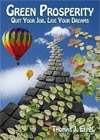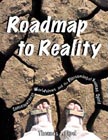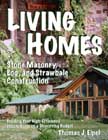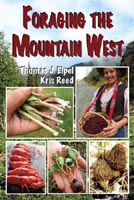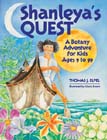Tom's Camping Journal
Camping with the Kids
Thursday October 19th - Saturday October 21st, 2000
In the pre-dawn darkness I reached over, still half in my sleeping bag, and held my hand over the fire pit searching for warmth. I blew at the warmest spot, pleasantly surprised to see a few live coals respond and glow, giving faint light to the lodge. Adding a handful of needles and twigs, I blew again, bringing forth flame, warmth, and bright light.
The lodge is a wickiup, a tipi-shaped shelter built of many dead spruce poles and covered over with bits of rotten wood, needles and duff from the forest floor. The older spruce trees long ago took all the light, choking dozens of their younger kin in the darkness below. We put the dead trees to use, cleaning up the previously impenetrable spruce grove to build our shelter. That was six years ago. It doesn't appear that anyone has disturbed the shelter in all that time.
Today the spruce poles still have short stubby branches attached all the way up. From inside the lodge it looks like we are in the forest, as if all the trees leaned their tops together to shelter us below.
Stoking the fire woke the kids. It was probably only five in the morning, but soon we were all awake and sitting by the fire, with the kids dressed in as little as shorts and tee-shirts. That is one of the remarkable thinks about camping in a primitive shelter like this, is that it can be so comfortable. In modern camping the fire is normally outside, so that you have to bundle up in all your clothes to stay warm. Then you leave the fire and crawl inside a cold tent and sleeping bag. It is a real thrill to camp in a wickiup and sit by the fire in shorts, a tee-shirt and bare feet high in the mountains in the middle of October. At night I put a long slender branch under the sleeping pads at the edge of our beds, to prevent anyone from rolling into the fire during the night.
There is something very primal, almost genetic, in living this way--something learned and passed down from generation to generation through 200,000 years or more of our ancestors building similar shelters and cooking over similar fires. In town I have the home of my dreams and everything I need, but still, there is something about living in the ancient way that I simply cannot survive without.
This year was the Summer of Fire, when drought conditions led to massive fires across the West and here in Montana. There was not a cloud in the sky, yet we could barely see the sun as the smoke settled in for days at a time through most of August. Each day I went out and dragged the hose from tree to tree. It felt like we were trying to build a homestead and establish life on an alien planet with a toxic atmosphere. Ironically, the one thing I wanted most was to go camping and to cook over a fire. Like being on the ocean with nary a drop to drink, we were surrounded by fires, yet could not have fire. It was neither safe nor legal to go camping or to build fire to cook by.
September rains and snows squelched the fires and brought the land back to life. With winter closing in and hunting season only a few days away, now would be my last good opportunity of the fall to take the kids and go camping. They had two days off from school plus the weekend, so we cleaned out the refrigerator, threw our clothes and food in the back of our 1973 Jeep pickup and headed up the South Boulder River to the wickiup. We keep most of our camping gear in the Jeep anyway, for lack of any other place to put it, so we had just about everything but the kitchen sink. We sorted it out when we parked and only carried what we needed the last eighth mile to the shelter.
Felicia started the fire with flint & steel when we arrived, after we worked over the shelter. Many times during our stay she marveled that such a tiny spark could start such a big fire and keep us warm and cook our food and still keep burning from day to day.
While waiting for the morning light, I took the opportunity to read to the kids. I read a chapter from Tom Brown Jr.'s book The Search, which was about an encounter with a raccoon, but also about fire, life, death, and renewal. There is nothing the kids love so much as to be read to. Stories reveal opportunities which they may have never considered, and each one captures their imaginations about new possibilities in life. Ghost stories capture the imagination too, and they read those to each other night and day, every chance they got.
Shortly after dawn we ate a simple breakfast of yogurt and cereal, then made sandwiches for lunch and headed out for a hike. All their shoes were sopping wet from playing in the snow, but Cassie brought her Sorrel boots, and Felicia is such a big kid now, that she wore mine. Donny wore his wet shoes, but didn't seem to mind.
Hiking is still relatively new to the kids. It has been more than four years since the adoption, but we always had other priorities besides hiking. Our family camping trips have been mostly by canoe, so they haven't yet learned to do long hikes, just lots of short walks. When it comes to outdoor skills, Renee and I are faced with the parents' paradox. On the one hand we want to give the kids the freedom to make their own choices and follow their own inclinations. On the other hand, kids usually want to do whatever they are familiar with, so it is helpful sometimes just to take them and go, whether they want to or not. Hiking is one of those situations. But I have learned a few things.
First, I brought along our boomerangs, so that the kids would have something to do along the way. Second, I made two sandwiches for each of us, so that we could eat lunch when the kids reached the point where they could not walk another step. Then we could walk some more before we ate lunch for real and turned around to go back. Next time I think I'll make three sandwiches apiece!
The kids used the boomerangs to slice blocks of snow from the snowbanks, then nibbled away at them as they walked. The scenery was simply stunning every step of the way--the water rushing downstream, the snowy peaks, the evergreen trees, the patches of snow and the now-barren aspen trees. The fall colors were mostly over, yet there were still golden leaves on the ground and a tinge of red in the shrubby roses. Even the brown leaves on the path were vibrant in their own way. This fall has been more spectacular than any I could ever recall, and it makes me wonder: is this year different than others, or have I changed?
As a writer I spend much of my time deeply immersed in my thoughts, trying to translate subtle feelings of the subconscious mind into tangible words and meaning. It was immensely frustrating to me as a kid to be able touch immensely powerful ideas about ecology, economics and life, while being helpless to communicate anything intelligibly. It took more than ten years of staring at the computer, trying desperately to write, before something snapped into place and allowed my thoughts to coalesce into the words I wanted.
Now writing is relatively easy, but I still experience it like being in a swimming pool, diving into my subconscious for substance at the bottom, then swimming with a morsel of inspiration back to the surface. I spend days, weeks, months at a time in this altered state, cycling between the bottom and the surface. Sometimes I wave to people that are only fifteen feet away, because everything seems so distant when I am inside the pool looking out. My office is right smack in the middle of the house and I am around the family every day, but it is like looking at them from under water. We talk and interact at the dinner table, but it is like talking through water. I don't dare break the spell, as it can take me a week or more to return to it. But this year it seemed especially hard to get out of that space. I worked on my writing from November all the way through until May, often twelve to fourteen hours per day. Writing is my passion, but it also makes me crazy.
I don't write or teach much in the summer, from Memorial Day to Labor Day, in order to spend lots of time with the family, yet it was only in July, after spending two weeks canoeing the Missouri River, that I felt like I was returning to normal space. By the middle of August I felt caught up, and by September I felt relaxed and "awake".
But there is more, because I feel awake now in a way that I have never experienced before. Through all of my life I have been so stuck in the swimming pool of my subconscious that it was a challenge just to focus on anything around me. I remember going on walks with my Grandma. She noticed everything. She commented on the sounds of the birds, the look of a tree, the feel of the breeze. Grandma was more aware of what was going on all around her than anyone else I have ever met. She didn't need a TV. She could watch the peacock in the yard or a dead tree on the hill every day and be completely absorbed by it. I believed religiously in nature awareness and nature appreciation, and Grandma made me so mad, because no matter how hard I tried to appreciate nature, she always did it better.
Of course, she wasn't in competition with me, she was just enjoying the incredible beauty of every day. Trying to compete with her was a distraction for me, but not the only one. Breaking out of the soup of my subconscious mind was the bigger problem.
Each day that I have been out this fall it feels like the first time I have broken free, to see the world clearly for the first time. I find myself marveling at every leaf, every rock every tree, appreciating it just as Grandma did. Well, almost.
It is interesting that the kids seem almost oblivious to the beauty of the place, although they are absorbed in a world of their own, eating the ice off the mud puddles. They asked if it was clean enough to eat. "Probably not." I responded. "Can we eat it anyway?" they asked. "Sure." Donny said he was eating glass, as he carried his frozen window pane along the trail.
The one thing I am most proud of is that they ate just about every rose hip we found along the way. They didn't do that when we first introduced them to wild edibles four years ago. But, like I said, people do what is familiar, and by now rose hips are very familiar.
I learned to eat rose hips from Grandma. Maybe that is why it feels so good to go on a walk, since I eat a week's worth of vitamin C every time I go out. The kids and I also ate "lemonheads" along the trail, actually a plant called sheep sorrel, but the name fits the taste.
I don't think we could have walked any slower if we tried, but then again, we were hiking uphill high in the mountains and the girls were wearing those heavy boots. They flopped over into every snow bank along the way. After lunch (our second one), it was all downhill and the kids commented on how much fun it was. "We should do this again!" they said.
The other thing I've learned about doing outdoor skills with our kids, is that they are much more sociable than I ever was. Primitive skills with Dad is ho-hum, but primitive skills with their peers is a chance to show off how much they know.
A year ago we brought Felicia's 5th grade class to our place for half a day of primitive skills training. I set up a tripod a couple blocks from our house, and the kids gathered the rest of the poles and put them in place to build a wickiup. I expected them to get bored easily, ready to move on to something else. In actuality, they would have spent the whole time working on the shelter if we let them. With flint & steel we started a fire inside that skeleton of the lodge and cooked up a pot of rosehip tea. Half a day, we decided, was not nearly enough.
Later I hauled in some bales of straw, and with the aid of neighborhood kids filled in all the gaps to make a well-insulated and waterproof wickiup. We camped in there several times last winter with our kids and their friends. We left our sleeping bags there between trips, so it was easy to go camping any time we wanted.
This year Cassie is in the 5th grade, so we brought her class up for a whole day of outdoor skills. They were reading a story about Indians, so they all had Indian names and they were very eager to learn the skills. Four inches of snow fell the night before, and some of the kids were under-dressed for the outing, but all had a good time. We managed to squeeze all fourteen kids plus Renee and I and the teacher into the lodge around the fire pit. Cassie started the fire with flint & steel, then all the other kids tried it to. We cleaned out a pumpkin, filled it with cabbage, onions, bouillon and Jerusalem artichoke roots and cooked it into stew with the aid of hot rocks. "Stone soup" we called it. The pumpkin seeds we roasted in a pan and ate. The kids mixed up some ashcake dough, just flour and water, and we cooked the patties on the hot coals. I still had wild gooseberries in the freezer from last year, so we boiled them with sugar and put it on the ashcakes. That was a big hit.
The kids had a lot of fun just running around in the snow and starting a new shelter of their own. The coldest kids spent more time in the lodge by the fire. The others I took out for some stalking exercises and stalking games on the hill.
The steepest trails near the wickiup turned to pure mud, and some of the boys were sliding down the trails on their butts in their snowpants. Even the kids who were not playing in the mud seemed to be covered from head to toe by the time we left. I hoped their parents would not complain to the school or the teacher about the ruined clothing! We spent the last hour with the whole muddy bunch in our family room, playing primitive musical instruments from our collection: drums, rattles, rainsticks, flutes and ocarinas.
Felicia's sixth grade class came up next, partly because they wanted to see the finished shelter, and also because the teacher wanted to have some fun too. We did many of the same skills, but it was a lot warmer that day, so we had more time for stalking exercises. We practiced fox walking, coyote running, hopping like a bunny, and jumping like a cat. We ended with a game of follow-the-leader through the bushes and a stalking game. Renee and I are always exhausted after those events. I don't know how teachers do it every day.
Anyway, the kids and I finished our hike in the mountains, minus one boomerang lost in the top of a tree. They played for an hour on a piece of old mining equipment near camp, pretending it was a battleship, a tank, an airplane, a submarine, and a spaceship, and well armed too. They talked me into a re-enactment of the Battle of the Bismarck, from a Johnny Horton song they have heard too many times. I got to be the British ship the Hood, which they promptly sank with a barrage of snowballs. The Bismarck is supposed to go down at the end of the song, but it didn't work that way this time.
My mom drove up the canyon and joined us in the evening. We cooked hamburgers over the fire, and for the second night had "raw smores" since the miniature marshmallows were to small to bother roasting.
The kids made a giant snowball, so we rolled that in front of the door at night to help reduce air flow through the lodge. The wind kicked up as we settled into sleep, announcing the coming storm, but we were well protected. The lodge has enough gaps between the poles that we would have been soaked if it were built out in the open. But this lodge has an extra roof in the form of the spruce trees overhead. The trees break the fall of the rain, allowing it to mist gently over us, easily deflected by the wickiup. It rained for nearly half the night. With the light of dawn the rain turned to snow and started to pile up.
I read another chapter out loud, cooked instant oatmeal and scrambled eggs for the kids, and then it was time to split. If the snow fell hard for an hour or two we could have been snowed in, with no easy way to get the vehicles out. Besides, my Jeep has no windshield wipers, no heater, and the windows don't roll up. We packed quickly, rolled the giant snowball into the fire pit, and hauled our gear to the Jeep. I was glad the kids rode back with Mom, since I was driving blind all the way. I took the short cut on dirt roads over the hills to avoid creating a hazard on the highway. Mom took the long way, drove several times farther than I did, but still walked in the house minutes after I did.
It was a short, but good camping trip. We cleaned up in the afternoon and attended the annual community spaghetti dinner and music night at the Pony School.
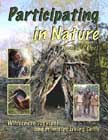
Go to Participating in Nature: Wilderness Survival and Primitive Living Skills
Return to the Primitive Living Skills Page




 Primitive Living Skills
Primitive Living Skills